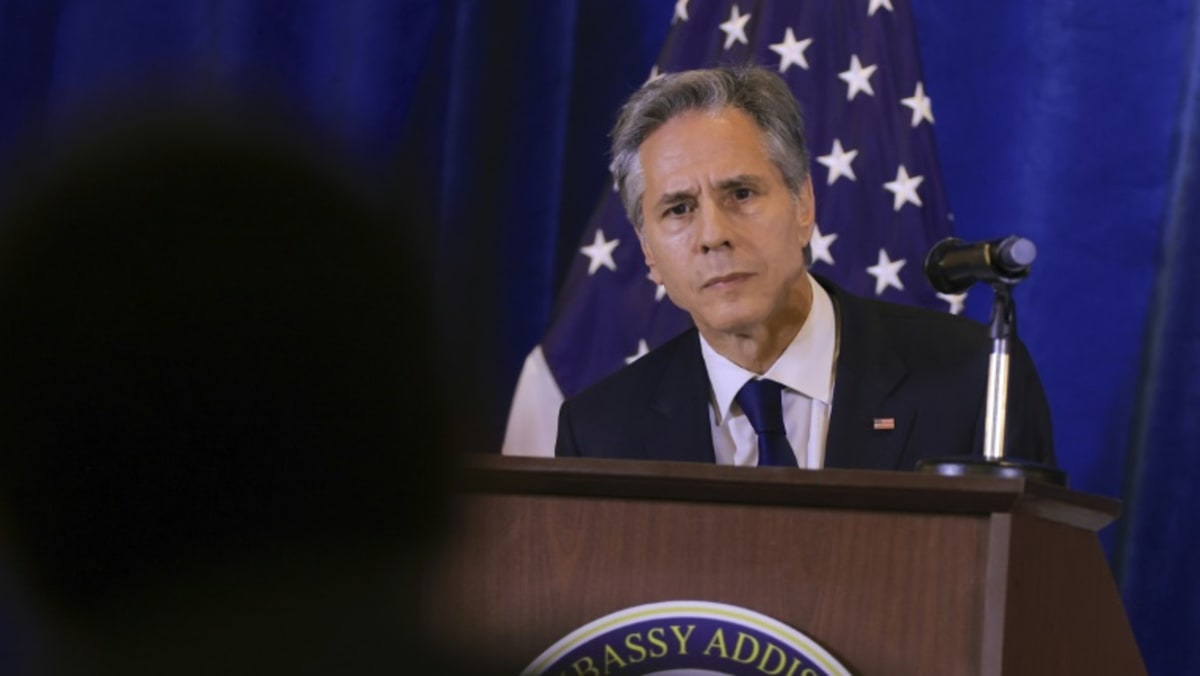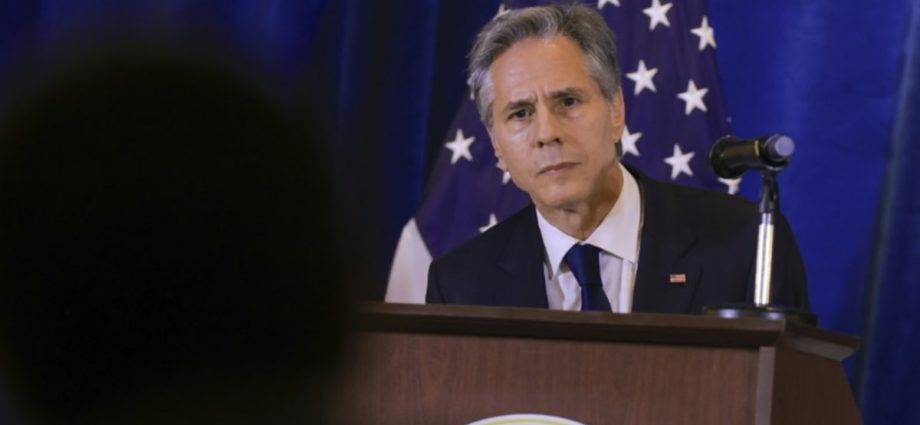
China has also stepped up diplomacy in the Middle East, where the United States has historically been the top power-broker.
China announced last week that rivals and major oil producers Iran and Saudi Arabia would restore ties.
Blinken, while saying that the accord had positive results, downplayed China’s role, saying that Riyadh and Tehran had already been working to patch up.
“I think what China did, cleverly, was to at the very end of that process take advantage of the work that these countries have done, and then basically host the conclusion of the agreement,” he said.
ENCOURAGING PUTIN ARREST
On the first of two days of testimony to Congress, Blinken also said the United States would encourage other countries to extradite Putin if he visits following an arrest warrant issued by the International Criminal Court.
“I think that anyone who is a party to the court and has obligations should fulfill their obligations,” Blinken said.
But he stopped short of saying the United States, which is not part of the court, would do so itself, calling the question “hypothetical.”
“I don’t think he has any plans to travel here soon,” he said of Putin.
Blinken was responding to questions from Republican Senator Lindsey Graham who said the United States should arrest Putin if he steps on US soil.
The United States has historically been hostile to the ICC, with the previous Republican administration of Donald Trump imposing sanctions on the court’s then-prosecutor for probing US military actions in Afghanistan.
Trump’s successor Joe Biden has improved relations with the court and dropped the sanctions, although a 2002 US law prevents Washington from formally assisting it.
Putin has not visited the United States since 2015 when he attended the United Nations General Assembly in New York.
Russia is part of the Asia-Pacific Economic Cooperation forum, which holds its summit in November in San Francisco, but it is highly unlikely the United States would invite Putin.

